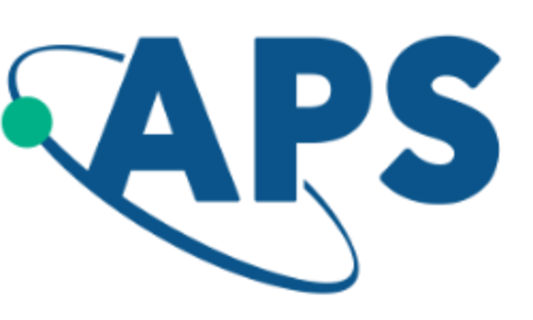Spring Semester
Throughout the spring semester, students at different academic levels may face specific challenges and concerns. As a mentor, making yourself aware of some of the common challenges your mentee faces, based on their academic level, can help you understand their perspective.
Freshmen
Some of the challenges and experiences freshmen students are undergoing include:
- Continuing academic transition: Freshmen may still be adjusting to the demands of college-level coursework, and the spring semester can present new academic challenges.
- Time management: Maintaining effective time management skills remains crucial as freshmen navigate more coursework, assignments, and potential extracurricular involvement.
- Building study habits: Reinforcing and refining study habits becomes important as the workload and complexity of coursework may increase.
- Exploration of majors: Some freshmen may continue to explore different STEM majors, leading to decisions about their academic path.
- Cultural adjustment: Continuing to navigate and adapt to the cultural norms and practices within the physics department and broader academic community.
- Financial strain: Managing ongoing financial pressures related to tuition, textbooks, supplies, and potential extracurricular activities.
- Family support: Balancing academic commitments with familial responsibilities and potential financial contributions from family members.
- Social integration: Seeking deeper social connections within the physics community, especially if there is a lack of representation from their background.
Sophomores
Some of the challenges and experiences sophomore students are undergoing include:
- Advanced courses: Spring semester may involve more specialized and challenging coursework, requiring deeper engagement with subject matter.
- Internship and research pursuits: Sophomores seeking internships or research opportunities may face competition and need to enhance their application materials.
- Declaring a major: Students who haven't declared a major by sophomore year may feel pressure to make a decision about their academic focus.
- Balancing responsibilities: Managing academic commitments, extracurricular activities, and potential part-time jobs can become more complex.
- Networking challenges: Overcoming potential barriers to networking, mentorship, and building professional relationships due to limited representation.
- Research and internships: Navigating opportunities for research or internships, including potential financial considerations or support.
- Academic workload: Managing the demands of advanced physics coursework and potential part-time jobs while maintaining academic performance.
- Familial expectations: Balancing academic pursuits with family expectations and potential pressures related to career choices.
Juniors
Some of the challenges and experiences junior students are undergoing include:
- Rigorous courses: Juniors may encounter higher-level courses that demand strong critical thinking, problem-solving, and analytical skills.
- Undergraduate research challenges: Those engaged in research projects may need to address data analysis, experimental setbacks, or project refinement.
- Graduate school or job planning: Juniors may be actively considering and preparing for graduate school applications or job searches.
- Networking and professional development: Spring semester offers opportunities for networking, attending conferences, and building connections for future career paths.
- Imposter syndrome: Addressing feelings of imposter syndrome and self-doubt as academic challenges become more complex.
- Research and career path: Exploring research opportunities and potential career paths while navigating limited representation in those fields.
- Financial pressures: Managing costs related to research, conferences, and travel, which can become more significant in upper-level coursework.
- Family dynamics: Continuing to communicate with family members about academic and career aspirations, potentially facing differing viewpoints.
Seniors
Some of the challenges and experiences senior students are undergoing include:
- Graduation preparation: Seniors face the imminent transition from academia to the workforce or further education, which can be both exciting and stressful.
- Completing degree requirements: Ensuring all requirements, including coursework, projects, and exams, are completed for graduation.
- Job search and interviews: Seniors may experience stress related to job applications, interviews, and negotiating job offers.
- Thesis or capstone completion: Those working on thesis projects or capstones may encounter challenges in finalizing research, analysis, and presentation.
- Job search and transition: Navigating the competitive job market or graduate school applications, which can involve additional challenges for underrepresented students.
- Financial decisions: Evaluating job offers or graduate school funding packages while considering ongoing financial concerns.
- Professional networks: Seeking mentorship and networking opportunities, potentially overcoming challenges in connecting with established professionals.
- Family support and concerns: Addressing family expectations and potential support or concerns related to post-graduation plans.
Graduate students
Some of the challenges and experiences graduate students are undergoing include:
- Research and dissertation progress: Spring can be a critical time for making substantial progress on research, data analysis, and writing the dissertation.
- Teaching and professional development: Balancing teaching responsibilities with ongoing research and personal growth can be demanding.
- Networking and conferences: Grad students may be attending conferences to present research or connect with colleagues in their field.
- Preparation for defense or comprehensive exams: Grad students preparing for comprehensive exams or thesis/dissertation defense face intensive studying and preparation.
- Transition planning: Those nearing the end of their graduate studies may be preparing for the transition to postdoctoral positions, industry roles, or academia.
- Research progress: Continuing to make progress on research projects and addressing potential funding or resource limitations.
- Networking and professional development: Building a professional network within academia or industry, potentially overcoming barriers to connections.
- Balancing responsibilities: Managing teaching responsibilities, research demands, and academic commitments while considering potential financial stress.
- Transition to career: Preparing for the transition from graduate studies to professional roles, including navigating potential biases in the job market.

